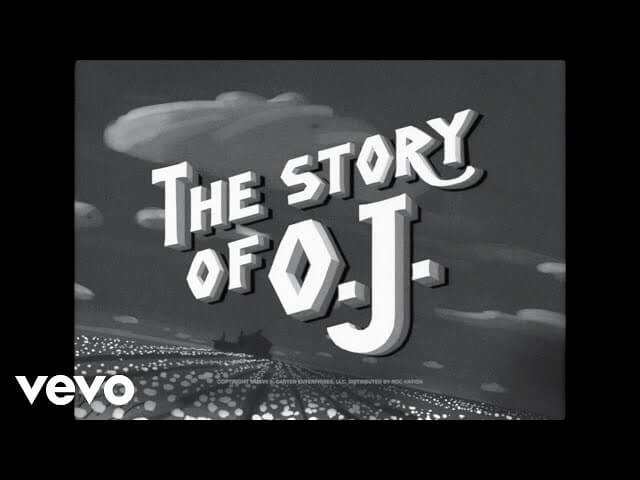JAY-Z’s lyric about Jews draws criticism from Anti-Defamation League

Furthering its reign as the hot summer album everyone will be cranking out op-eds about, JAY-Z’s 4:44 has come under fire from the Anti-Defamation League for the lyrics to “The Story Of O.J.,” a song that some have branded anti-Semitic for its deployment of Jewish stereotypes. The line in question—“You wanna know what’s more important than throwin’ away money at a strip club? Credit / You ever wonder why the Jewish people own all the property in America? This how they did it”—appears in a song that JAY-Z has said is “about we as a culture, having a plan, how we’re gonna push this forward. We all make money, and then we all lose money, as artists especially. But how, when you have some type of success, to transform that into something bigger.” And while both the track and its accompanying animated video—filled with burning crosses, black characters eating watermelon and picking cotton, and other racist minstrel imagery—employ exaggerated stereotypes to comment on how these perceptions still persist today, casually tossing Jews into the mix hasn’t exactly gone over well.
“We do not believe it was JAY-Z’s intent to promote anti-Semitism,” an ADL representative tells Rolling Stone. “On the contrary, we know that JAY-Z is someone who has used his celebrity in the past to speak out responsibly and forcefully against the evils of racism and anti-Semitism.” In fact, in 2006, Jay appeared alongside Russell Simmons in a PSA decrying anti-Semitism as decidedly not hot.
Nevertheless, the ADL adds, “The lyric does seem to play into deep-seated anti-Semitic stereotypes about Jews and money. The idea that Jews ‘own all the property’ in this country and have used credit to financially get ahead are odious and false. Yet, such notions have lingered in society for decades, and we are concerned that this lyric could feed into preconceived notions about Jews and alleged Jewish ‘control’ of the banks and finance.”
Given our current atmosphere—where those anti-Semitic stereotypes are no longer just ugly, yet mostly unspoken presumptions, but rather inspiring nasty gas chamber memes by Internet Nazi shitheads, and forming the foundation of an entire festering political insurgency—that’s no idle concern, especially considering “nuance” isn’t exactly those people’s strong suit. Nevertheless, Jay’s defenders have urged listeners who can still delineate those things to consider the lyric in context—and furthermore, to see that he’s really paying Jews his respect. “The fact is this culture that promotes good business and financial well-being is and has been a guiding light to the black and specifically the hip-hop community,” Simmons said earlier this week.
Guy Oseary, the Israeli-born manager for Madonna and U2, echoed those sentiments in an Instagram post, saying that the song “is based on exaggerated stereotypes to make a point,” and adding that Jay was “attempting to use the Jewish people in an exaggerated way to showcase a community of people that are thought to have made wise business decisions… . As an example of what is possible and achievable… In my opinion, Jay is giving the Jewish community a compliment… If you had to pick a community as an example of making wise financial decisions achieving financial freedom who would you choose?.. I’m not offended by these lyrics..”
JAY-Z has yet to comment on this or any of the other responses and assorted controversies that 4:44 has spawned, though at this point he may as well wait and address them all at once—preferably over some beats, so we all have another hot album to debate next summer.